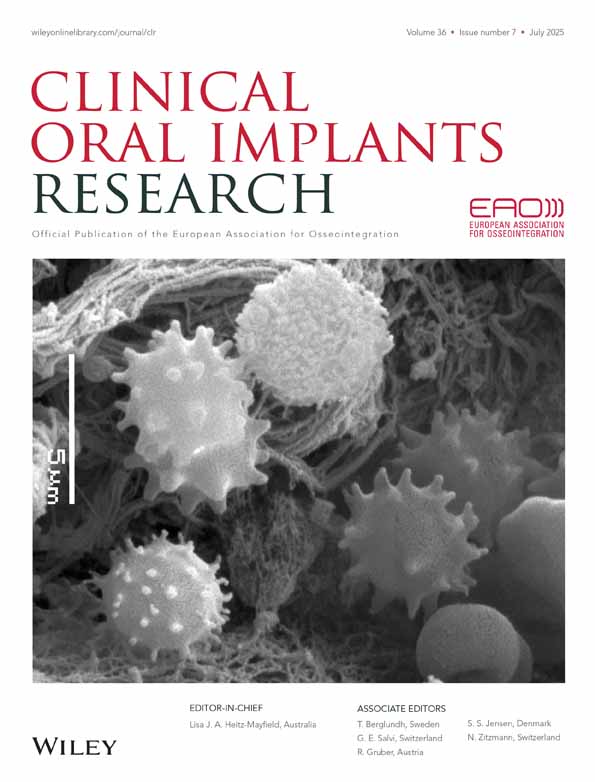Pain and instability during biting with mandibular implant-retained overdentures
Abstract
Abstract: We tested in a randomized controlled clinical trial the effect of pain and instability of dentures on bite force with different degrees of mucosal support. The trial involved 3 groups who had received: 1) a new conventional denture (CD-group), 2) an implant-mucosa-borne overdenture on 2 IMZ implants (IMZ-group) or 3) a mainly implant-borne overdenture retained by a transmandibular implant (TMI-group). Fifty-three women and 15 men, mean age 59 years, participated in this study. Bite force measurements were made unilaterally with a transducer and bilaterally with a bite fork. After the measurements, subjects were asked whether or not biting had caused pain or tilting of one of the dentures. Significantly more complete-denture wearers reported pain. They reported more frequent pain in the mandible than in the maxilla (P<0.001), whereas implant-groups seemed to experience more often pain in the maxilla. On the transducer, maxillary dentures of the CD-group tilted less (P<0.01) and mandibular dentures more (P<0.05) compared to the implant-groups. With the bite fork, tilting occurred more often in the incisal-cuspid area than in the molar region (P<0.001). No effect of pain and tilting was observed on maximum bite force. It appears that oral implants used to stabilize mandibular dentures permit subjects to exert higher bite forces and reduce the pain as otherwise felt in the mandible during maximum biting. Due to this stabilization, pain and instability of the maxillary denture can become the limiting factor for a further increase in bite force.




